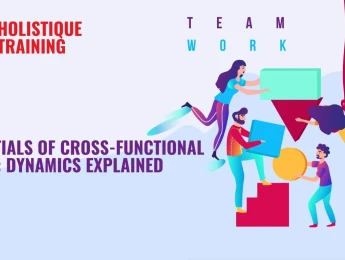- Table of Contents
- Introduction
- What Is a Multicultural Team?
- Benefits of Having a Multicultural Team
- Enhanced Creativity and Innovation
- Global Market Understanding
- Improved Decision-making
- Increased Flexibility and Adaptability
- Broader Talent Pool
- Enhanced Customer Relations
- Conflict Resolution Skills
- Richer Learning Experience
- Competitive Advantage
- How to Manage a Multicultural Team: Best Practices
- 1. Cultivate Cultural Awareness and Sensitivity
- 2. Foster Open Communication
- 3. Embrace Diversity in Leadership
- 4. Establish Clear Goals and Expectations
- 5. Encourage Collaboration and Team Building
- 6. Provide Cross-Cultural Training
- 7. Create a Resource Library
- 8. Implement Flexible Work Arrangements
- 9. Address Conflict Promptly and Fairly
- 10. Celebrate Cultural Awareness Months
- 11. Regularly Seek Feedback
- 12. Lead by Example
- Inclusivity: What It Is and Why Is It Important
- Why Is Inclusivity Important?
- The Role of Technology in Managing Multicultural Teams
- Virtual Collaboration Tools
- Language Translation Software
- Diversity and Inclusion Training Apps
- Project Management Software
- Cross-Cultural Communication Apps
- Inclusive Meeting and Webinar Platforms
- Diverse Content Creation Tools
- Global HR and Payroll Systems
- Data Analytics and Reporting Tools
- Secure Communication Platforms
- Cultural Sensitivity Training Software
- Feedback and Survey Tools
- The Impact of Multicultural Teams on Company Culture
- Cultural Sensitivity
- Innovation Culture
- Global Perspective
- The Future of Multicultural Teams
- Remote Work
- Diversity, Equity, and Inclusion (DEI) Initiatives
- Cross-Cultural Training
- Conclusion
Introduction
In an era of rapid globalisation and interconnectedness, workplaces are undergoing a transformative shift, becoming melting pots of diverse cultures, traditions, and perspectives. Embracing this diversity has become a necessity for organisations seeking to stay competitive and thrive in the global marketplace. As a result, multicultural teams have become more prevalent, presenting unique opportunities and challenges.
Effectively managing multicultural teams requires a delicate balance of cultural awareness, open communication, and inclusive leadership. Gone are the days when homogenous teams ruled the corporate landscape; today, diversity is celebrated for the value it brings to businesses. By fostering an inclusive work environment, organisations can unlock the full potential of their multicultural teams, leading to enhanced creativity, innovation, and a deeper understanding of global markets.
In this comprehensive blog post, we will delve into the intricacies of nurturing inclusivity and understanding the best practices for leading such diverse teams to success. We will explore the benefits that multicultural teams offer, the importance of cultural awareness, and how to overcome communication barriers that may arise in this diverse setting. Moreover, we will shed light on the critical role of leadership in promoting inclusivity and creating an environment where every team member feels valued, respected, and empowered to contribute their unique perspectives.
Join us on this enlightening journey as we unravel the secrets to effectively managing multicultural teams, creating an ecosystem where diversity thrives, and organisations flourish in today's dynamic and interconnected world.
What Is a Multicultural Team?
A multicultural team is a group of individuals from various cultural backgrounds, ethnicities, and nationalities working together towards a common goal. These teams can be found in all industries and sectors, reflecting the diverse nature of the modern workforce. A key aspect of multicultural teams is the blending of different values, communication styles, and working norms, which can create both opportunities and challenges.
Table 1: Benefits of Having a Multicultural Team
Benefits | Description |
Enhanced Creativity and Innovation | Combining diverse ideas and perspectives fosters creativity and groundbreaking solutions. |
Global Market Understanding | Insights from different regions provide a deeper understanding of global markets. |
Improved Decision-making | Multiple viewpoints lead to robust decision-making by challenging assumptions. |
Increased Flexibility and Adaptability | Exposure to diverse cultures enhances adaptability and flexibility. |
Benefits of Having a Multicultural Team
Embracing the richness of cultural diversity not only leads to an inclusive work environment but also brings forth a plethora of advantages for organisations. Statistics show that companies boasting diverse management teams see a 43% increase in profits, while those implementing ethnoracial diversity measures are 36% more likely to outperform their industry counterparts. Let's now explore the benefits of having a multicultural team and why it is a valuable asset in the modern business landscape:
Enhanced Creativity and Innovation
Multicultural teams provide a rich pool of diverse ideas and perspectives, fostering creativity and innovation. The combination of varied viewpoints often results in unique problem-solving approaches and groundbreaking solutions. This diversity of thought can lead to product breakthroughs, process improvements, and a competitive edge in the market.
Global Market Understanding
With team members from different regions, multicultural teams offer a deeper understanding of global markets. This insight can be invaluable when expanding into new territories and catering to a diverse customer base. For instance, having a team member who grew up in a particular region can provide crucial insights into local preferences, market trends, and cultural nuances that are often challenging for outsiders to grasp.
Improved Decision-making
Multicultural teams tend to analyse situations from multiple angles, leading to more robust and comprehensive decision-making processes. Differing viewpoints challenge assumptions, helping teams make informed choices. This enhanced decision-making capability can lead to better risk management, strategic planning, and adaptability in a fast-changing business environment.
Increased Flexibility and Adaptability
Exposure to diverse cultures enhances adaptability and flexibility in the team. As team members learn to navigate differences and embrace change, they become better equipped to handle dynamic business environments. Multicultural teams are often more resilient in the face of unforeseen challenges, as their varied experiences have prepared them to think on their feet and find creative solutions.
Broader Talent Pool
Multicultural teams open the door to a broader talent pool. Organisations can attract and retain top talent from around the world, regardless of their cultural background. This diversity in the workforce can lead to a competitive advantage by bringing in individuals with unique skills, experiences, and perspectives that might not be available in a homogenous team.
Enhanced Customer Relations
When an organisation's workforce reflects the diversity of its customer base, it can lead to enhanced customer relations. Customers often feel more comfortable interacting with individuals who understand their cultural context and can provide tailored solutions. This can result in increased customer satisfaction, loyalty, and word-of-mouth referrals.
Conflict Resolution Skills
Working in a multicultural team provides opportunities for team members to develop strong conflict resolution skills. As cultural differences sometimes lead to misunderstandings or disagreements, team members learn to navigate these conflicts with sensitivity and diplomacy. These skills can be valuable not only in the workplace but also in everyday life.
Richer Learning Experience
Multicultural teams offer a richer learning experience for all team members. They provide exposure to different languages, traditions, and worldviews, fostering personal growth and a broader perspective. Team members often acquire cross-cultural communication skills that serve them well in their careers and personal lives.
Competitive Advantage
In an increasingly globalised marketplace, having a multicultural team can give organisations a significant competitive advantage. They are better equipped to adapt to diverse customer needs, enter new markets, and develop products or services that resonate with a wide range of consumers. This adaptability and market sensitivity can translate into increased market share and profitability.
How to Manage a Multicultural Team: Best Practices
Having understood the myriad advantages that multicultural teams offer, it is imperative to delve into the best practices for effectively managing and harnessing the full potential of such diverse groups. Let's explore the essential strategies and approaches that foster seamless collaboration and inclusivity within multicultural teams:
1. Cultivate Cultural Awareness and Sensitivity
Cultural awareness and sensitivity are foundational to managing multicultural teams. Encourage team members to not only acknowledge but actively understand and appreciate each other's cultural backgrounds, customs, and traditions. Organise regular cultural exchange sessions where team members can share their experiences and values. This fosters an atmosphere of mutual respect and empathy, reducing the chances of misunderstandings.
2. Foster Open Communication
Effective communication is the cornerstone of any successful team, and it becomes even more critical in multicultural settings. Encourage open dialogue and active listening to bridge communication gaps. Create a safe space for team members to express themselves, emphasising the importance of clarity and straightforwardness. Encourage team members to ask questions to promote understanding and avoid misinterpretation.
3. Embrace Diversity in Leadership
Diverse leadership is essential for creating an inclusive environment. Having leaders from different cultural backgrounds can inspire confidence and trust among team members. When individuals see leaders who share their cultural background in influential positions, they feel represented and valued. This representation can contribute significantly to better decision-making, team cohesion, and overall morale.
4. Establish Clear Goals and Expectations
Clear communication of the team's objectives and expectations is crucial. Leave no room for ambiguity regarding the team's mission and individual roles. Ensure that everyone understands their responsibilities and how they contribute to the team's success. This clarity fosters a sense of unity and purpose, regardless of cultural differences, as team members can align their efforts toward common goals.
5. Encourage Collaboration and Team Building
Promote collaboration through a variety of team-building activities and projects that require cross-cultural cooperation. Engaging in activities that celebrate diversity, such as cultural festivals or international food days, can create strong bonds among team members. These shared experiences foster a sense of belonging and unity, breaking down cultural barriers.
6. Provide Cross-Cultural Training
Offer cross-cultural training to team members to enhance their understanding of different cultures, customs, and communication styles. Training programmes can help team members navigate potential cultural pitfalls and misunderstandings. It's an investment that pays off by improving team dynamics and reducing conflicts.
7. Create a Resource Library
Develop a resource library or knowledge repository that contains information about various cultures, languages, and customs. This resource can serve as a reference for team members when they encounter unfamiliar situations or questions related to cultural differences. It can also include language translation tools or guides to facilitate effective communication.
8. Implement Flexible Work Arrangements
Recognise that team members from different cultural backgrounds may have different preferences regarding work hours and practices. Implement flexible work arrangements where feasible, allowing team members to adjust their schedules to accommodate cultural or religious obligations. This demonstrates respect for diverse lifestyles and enhances work-life balance.
9. Address Conflict Promptly and Fairly
Conflict is natural in any team, but in multicultural teams, it may arise from cultural misunderstandings. Develop clear conflict resolution protocols that are fair and impartial. Encourage team members to report issues promptly, and ensure that disputes are addressed promptly and professionally, with an emphasis on finding common ground and fostering understanding.
10. Celebrate Cultural Awareness Months
Acknowledge and celebrate cultural awareness months or diversity-related events throughout the year. This can include Black History Month, Pride Month, or cultural heritage celebrations. It creates opportunities for team members to learn about and appreciate each other's backgrounds while promoting inclusivity and a sense of belonging.
11. Regularly Seek Feedback
Encourage an environment where team members feel comfortable providing feedback about their experiences within the multicultural team. Regularly seek input on the team's dynamics, communication processes, and inclusivity efforts. Use this feedback to continuously improve and adapt your management strategies.
12. Lead by Example
Lastly, as a manager or leader, lead by example when it comes to embracing diversity and fostering inclusivity. Demonstrate respect for different cultures and set the tone for open communication and collaboration. Your actions and attitudes will influence the team's behaviour and perception of diversity within the organisation.
Incorporating these twelve best practices into your approach to managing multicultural teams will not only promote harmony and inclusivity but also unlock the full potential of diversity within your organisation. Managing such teams effectively is a dynamic process that requires ongoing effort and commitment to create a thriving, culturally diverse workforce.
Inclusivity: What It Is and Why Is It Important
Inclusivity refers to creating a work environment where all team members, regardless of their cultural background, feel welcomed, respected, and valued. It is more than just acknowledging diversity; it involves actively ensuring that everyone's perspectives and contributions are considered and appreciated.
Why Is Inclusivity Important?
Inclusivity is not merely a buzzword or a checkbox on a diversity and inclusion checklist; it is a fundamental aspect of creating a thriving and successful multicultural team and workplace. In fact, citing data from LinkedIn, research reveals that teams that prioritise inclusivity experience a remarkable increase of over 35% in productivity. Moreover, diverse teams excel in decision-making, outperforming their counterparts 87% of the time. That being said, let's delve deeper into why inclusivity is of paramount importance:
Enhanced Employee Morale and Productivity
When team members feel included and valued, their morale soars. They are more motivated to contribute their best efforts, resulting in increased productivity and job satisfaction. In an inclusive environment, employees are more likely to be engaged, committed, and passionate about their work, leading to higher performance levels.
Reduction in Turnover Rates
Inclusive teams have lower turnover rates. When employees feel supported, accepted, and valued for who they are, they are more likely to stay with the organisation. Lower turnover rates translate to reduced recruitment and training costs, as well as the preservation of institutional knowledge.
Enhanced Creativity and Innovation
Inclusivity is a catalyst for enhanced creativity and innovation. In diverse and inclusive teams, individuals draw on a wider range of ideas and viewpoints. This diversity of thought leads to more innovative solutions to complex problems and can be a driving force behind new product development and process improvements.
Improved Decision-making
Inclusive teams tend to make more informed and robust decisions. This is because diverse teams analyse situations from multiple angles, challenge assumptions, and consider a broader range of perspectives. This diversity in decision-making styles can lead to more comprehensive and effective choices.
Attracts Top Talent
Companies known for fostering an inclusive culture attract top talent from diverse backgrounds. When organisations prioritise inclusivity, they become magnets for individuals who value diversity and inclusion in their workplaces. This influx of diverse talent enriches the organisation with a wide range of skills, experiences, and perspectives.
Enhanced Customer Relations
An inclusive workforce can lead to improved customer relations. Customers often feel more comfortable interacting with employees who understand their cultural context and can provide personalised, culturally sensitive solutions. This can result in increased customer satisfaction, loyalty, and positive word-of-mouth referrals.
Global Market Expansion
Inclusivity prepares organisations to expand into global markets more effectively. In a multicultural and inclusive work environment, employees are better equipped to understand and engage with diverse international customers and partners. This cultural competence can be a strategic advantage when entering new markets or expanding existing ones.
Legal and Ethical Compliance
Inclusivity aligns with legal and ethical standards, preventing potential legal issues related to discrimination and bias. Organisations that promote inclusivity demonstrate their commitment to treating all employees fairly and equitably, reducing the risk of lawsuits and reputational damage.
Enhanced Reputation
An inclusive workplace builds a positive reputation in the eyes of both employees and the public. It sends a powerful message to clients, investors, and the community that the organisation values diversity, equity, and inclusion. A strong reputation can lead to increased trust and brand loyalty.
Increased Market Share
Inclusivity can lead to increased market share. As organisations cater to diverse markets and demographics, an inclusive workforce is better equipped to understand and meet the needs of a broad customer base. This can result in expanding market share and capturing new customer segments.
The Role of Technology in Managing Multicultural Teams
In our ever-connected world, technology plays an increasingly pivotal role in managing multicultural teams. The digital tools and platforms available today can bridge geographical gaps, facilitate communication, and enhance collaboration. Let's explore the multifaceted role of technology in effectively managing multicultural teams:
Virtual Collaboration Tools
Virtual collaboration tools such as Zoom, Microsoft Teams, Slack, and Google Workspace have become indispensable for multicultural teams. These platforms facilitate seamless virtual meetings, video conferences, and real-time messaging, allowing team members from different locations to collaborate effectively. With features like screen sharing and document collaboration, these tools promote efficient communication and teamwork, eliminating the challenges posed by physical distance.
Language Translation Software
Language barriers can be a significant challenge in multicultural teams. Language translation software and apps, like Google Translate or specialised translation tools, can help in real-time translation of conversations, emails, and documents. These tools promote clear and effective communication, ensuring that language differences do not hinder collaboration or cause misunderstandings.
Diversity and Inclusion Training Apps
There are mobile apps and online platforms designed to educate team members about cultural diversity and inclusion. These apps provide valuable insights into different cultures, customs, and communication styles. They can also offer tips and scenarios for navigating cross-cultural interactions, helping team members build cultural competence and awareness.
Project Management Software
Project management software such as Trello, Asana, or Monday.com can be instrumental in managing multicultural teams. These tools allow for the clear definition of project goals, roles, and responsibilities. They provide transparency, ensuring that all team members, regardless of their cultural background, are on the same page regarding project progress and timelines. Additionally, project management software promotes accountability and efficiency, which are essential for multicultural teams.
Cross-Cultural Communication Apps
Cross-cultural communication apps and platforms are specifically designed to bridge communication gaps in multicultural teams. They may offer cultural sensitivity training, etiquette guides, and instant translation features. These apps can help team members understand and navigate the nuances of cross-cultural interactions, fostering effective and respectful communication.
Table 2: Managing multicultural teams before vs. with the presence of technology

Inclusive Meeting and Webinar Platforms
Inclusive meeting and webinar platforms prioritise accessibility and inclusivity. They offer features such as closed captioning, sign language interpretation, and screen reader compatibility to accommodate team members with disabilities. These platforms ensure that all team members can participate fully in virtual meetings and events, regardless of their abilities.
Diverse Content Creation Tools
Content creation tools, such as graphic design software and multimedia editors, have features that cater to diverse audiences. They offer templates, fonts, and images that are culturally sensitive and inclusive. This allows multicultural teams to create content that resonates with a wide range of audiences while respecting cultural nuances and preferences.
Global HR and Payroll Systems
For organisations with international operations, global HR and payroll systems are essential. These systems help manage the complexities of a multicultural workforce, including different tax regulations, payroll cycles, and benefits packages in various countries. They ensure that all team members are compensated and managed fairly and in compliance with local laws.
Data Analytics and Reporting Tools
Data analytics and reporting tools can provide insights into team dynamics and performance. They can help identify potential areas of concern related to diversity, equity, and inclusion within the team. By analysing data on team collaboration, engagement, and satisfaction, organisations can make informed decisions to improve inclusivity and teamwork.
Secure Communication Platforms
In multicultural teams that handle sensitive or confidential information, secure communication platforms are crucial. These platforms offer end-to-end encryption, secure file sharing, and data protection features to ensure the privacy and security of communication, especially when dealing with international clients, partners, or regulatory compliance.
Cultural Sensitivity Training Software
Some organisations invest in cultural sensitivity training software that provides interactive modules and scenarios to help team members develop cultural awareness and competence. These platforms often include quizzes, simulations, and case studies to reinforce learning, enabling team members to navigate cultural differences effectively.
Feedback and Survey Tools
Feedback and survey tools enable organisations to gather input from team members regarding their experiences in multicultural teams. They can be used to assess inclusivity, identify areas for improvement, and measure the effectiveness of diversity and inclusion initiatives. This data-driven approach allows organisations to continuously refine their strategies for managing multicultural teams.
The Impact of Multicultural Teams on Company Culture
Multicultural teams have a profound impact on company culture. When organisations embrace diversity and inclusivity, it permeates the entire workplace culture. Here are some ways multicultural teams influence company culture:
Cultural Sensitivity
Company culture becomes more culturally sensitive as team members learn to appreciate and respect diverse backgrounds. This sensitivity extends beyond the workplace into everyday interactions.
Innovation Culture
Multicultural teams often foster an innovation culture where new ideas are welcomed and encouraged. This culture of innovation can be a driving force for organisational growth.
Global Perspective
The presence of multicultural teams brings a global perspective to the company culture. Organisations become more attuned to international markets and trends.
The Future of Multicultural Teams
As we look ahead, the importance of multicultural teams is only expected to grow. Globalisation continues to shape the business landscape, and organisations that can adapt to diverse markets and workforces will thrive. Here are some trends and considerations for the future of multicultural teams:
Remote Work
The rise of remote work has made it easier to build multicultural teams with members from different parts of the world. This trend is likely to continue, requiring organisations to invest in tools and practices that support remote multicultural collaboration.
Diversity, Equity, and Inclusion (DEI) Initiatives
Companies are increasingly prioritising DEI initiatives. This involves not just acknowledging diversity but actively working to create an inclusive and equitable workplace.
Cross-Cultural Training
Training programmes focused on cross-cultural communication and understanding are becoming more prevalent. These programmes prepare employees and leaders to navigate the complexities of multicultural teams.
Conclusion
Managing multicultural teams comes with its challenges, but the benefits they offer are undeniable. Embracing diversity and practising inclusivity are essential for creating a harmonious and productive work environment. By fostering cultural awareness, promoting open communication, and nurturing an inclusive culture, organisations can harness the full potential of their multicultural teams. Embracing diversity is not just about ticking boxes; it's about embracing the richness that cultural differences bring to the table and creating an environment where every individual can thrive.
As organisations continue to expand globally, mastering the art of managing multicultural teams becomes a crucial skill for achieving sustainable success in today's dynamic business landscape. To equip you with the essential skills and knowledge to build cohesive and high-performing multicultural teams, consider enrolling in our transformative course, ‘How to Build a Cohesive Team for Excellence,’ where you will gain valuable insights and practical strategies to unlock the full potential of diversity and drive your organisation towards unparalleled success.

























